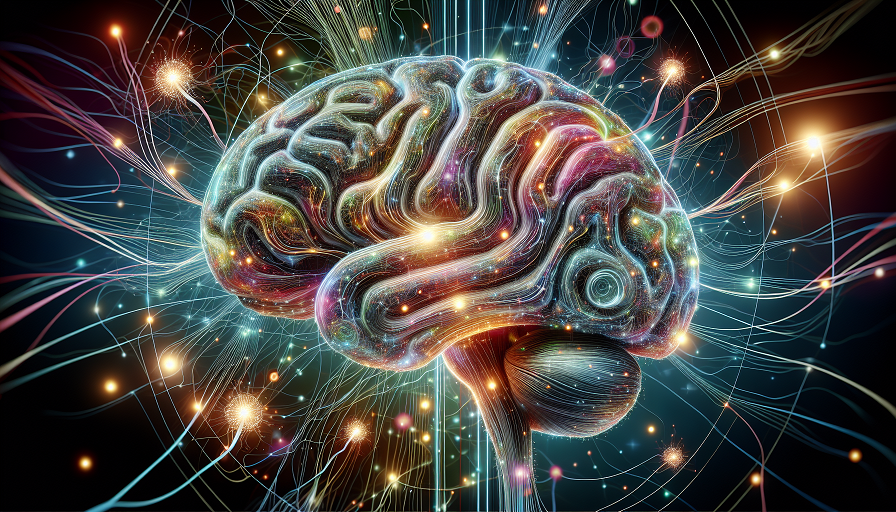
Psilocybin, the active compound in certain mushrooms, has a reputation for inducing profound psychedelic experiences. But recently, it’s found a subtler spotlight: microdosing. This practice involves taking tiny, sub-perceptual doses—just enough to harness potential benefits without altering perception. People who microdose often report improved focus, creativity, and emotional balance. But what’s happening in the brain to support these claims? Let’s explore how psilocybin might boost neuroplasticity and enhance cognitive abilities like problem-solving and creative thinking.
Psilocybin’s Influence on Neuroplasticity
Neuroplasticity is your brain’s ability to adapt and reorganize itself—essentially, it’s the way your brain learns, grows, and bounces back from challenges. Think of it as mental agility, allowing you to forge new paths when old habits or thought patterns no longer serve you. Psilocybin appears to supercharge this process by increasing synaptogenesis, or the formation of new connections between neurons.
Research suggests that psilocybin activates serotonin 2A receptors, which play a critical role in mood, perception, and learning. This activation stimulates dendritic growth—the tiny branches on neurons that facilitate communication between brain cells. Imagine a tree growing more branches to reach sunlight; your brain does something similar to enhance its connectivity and efficiency.
Enhanced neuroplasticity could explain why people who microdose psilocybin report feeling more open to new ideas and approaches. By making it easier for your brain to break free from rigid thought patterns, psilocybin helps create a mental environment ripe for innovation and growth.
It’s also worth noting that increased neuroplasticity isn’t just about creativity. It has broader implications for mental health, potentially supporting recovery from depression, anxiety, or PTSD by fostering new, healthier ways of thinking. While microdosing won’t induce the life-altering shifts associated with a full psychedelic experience, it may still nudge the brain toward greater flexibility and resilience over time.
Studies Suggesting Improved Creativity and Problem-Solving
Creativity isn’t just for artists and musicians—it’s the lifeblood of problem-solving in daily life. Whether you’re brainstorming at work or finding a creative way to coax your toddler into eating vegetables, thinking outside the box is essential. Microdosing psilocybin may give your brain the boost it needs to find novel solutions.
In a study published in Psychopharmacology, participants who microdosed psilocybin performed better on tasks requiring divergent thinking, a type of creativity that involves generating multiple solutions to a single problem. For example, participants came up with more unique and original ideas during brainstorming exercises, suggesting that microdosing may loosen mental constraints and encourage out-of-the-box thinking.
Another study from Frontiers in Psychology looked at anecdotal reports from individuals who microdose. Many participants described enhanced problem-solving skills and the ability to connect seemingly unrelated ideas—an important hallmark of creative thought. For instance, a software engineer might discover an elegant coding solution, or a writer might overcome a block with a fresh perspective.
Microdosing may also enhance flow states—those moments when you’re so deeply immersed in a task that time seems to melt away. By increasing focus and reducing mental clutter, psilocybin might help you get “in the zone” more easily, whether you’re painting a masterpiece or crunching numbers.
It’s important to acknowledge that while anecdotal evidence and preliminary studies are promising, microdosing isn’t a magic bullet. Results can vary widely based on individual brain chemistry, dosage, and context. For those interested in exploring psilocybin, understanding legal restrictions and consulting knowledgeable professionals is crucial.
Microdosing psilocybin offers a fascinating glimpse into the brain’s potential for growth and adaptability. By fostering neuroplasticity and supporting creativity, it provides a subtle but potentially powerful way to improve cognitive function. While science continues to catch up with personal reports, it’s clear that psilocybin has sparked a meaningful conversation about how we can better support our brains in thinking, growing, and solving problems.

